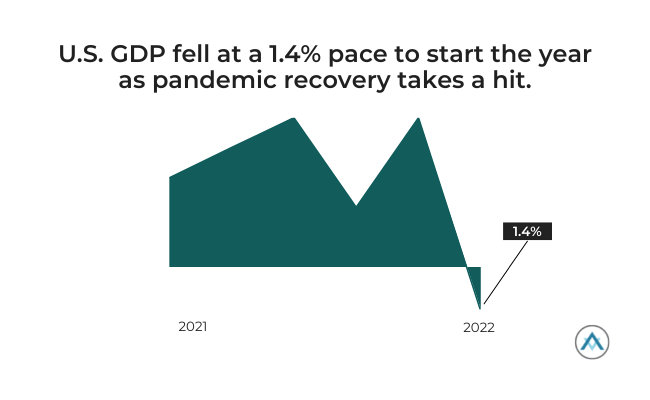- Why do domestic businesses turn to foreign markets?
- Do you need to go overseas to expand your business?
- Do you need to register your business in every country you sell to?
Q: What is a domestic business example?
A: A domestic business is a business that sells primarily to the people local to its physical location. For example, if a business is registered in the United States and focuses its efforts on selling to US citizens, that business can be considered domestic. Many domestic businesses think they need to go overseas to grow. This article explores the necessity of doing so.
Growing your business is one of the most exciting aspects of being an entrepreneur.
As your business expands, you almost always make more money – and you can’t complain when you’re earning extra capital and boosting your financial security.
But the benefits of expansion go far beyond a little extra cash. Growing a small business into a major enterprise is intrinsically rewarding as you watch the fruits of your labor bloom – with the knowledge you made it all happen through hard work and determination.
It’s no wonder that so many domestic business owners look to expand on an international scale. They want to see their brand reach new heights, new markets, and new, untapped opportunities. Who wouldn’t?
And with the US GDP recently falling by 1.4 percent, it makes sense to be wary of the domestic market.
But is going international truly the best move? Are foreign markets always the answer to your small business goals?
- Domestic vs international business
- Why turn to foreign markets?
- Do you need to go overseas to grow your small business?
- Do you always need to register to sell overseas?
What is a Domestic Business?
Before we get into the pros and cons of going international, let’s review some basic terminology:
The definition of a domestic business is pretty straightforward:
“A business that operates in the same geographic location as its primary market resides.”
In other words, a domestic business is one that sells products and services locally.
Depending on the context, this all-encompassing definition can apply to a range of businesses.
Some say that if your business is operating across state borders, it can be defined as “international” to some extent.
But putting the specifics of small business location aside, we’re going to focus on the “traditional” definition of a domestic business:
In this sense, a domestic business is a company that was founded in the United States and sells to customers within the borders of the nation.
Domestic vs International Businesses
If a domestic business is a business that sells primarily to residents within its home country, an international business is a business that spreads beyond international borders.
International businesses sell in foreign markets. In fact, selling to these international customers is often an extremely active and significant part of their overall business plan.
International businesses are synonymous with foreign businesses in most senses. A foreign business is a business that begins operating in a country that it was not formed in.
For instance, if a business from China begins selling to the US market, we would consider them a foreign business.
Foreign businesses differ slightly from international businesses in that they don’t necessarily sell in multiple countries.
You could theoretically start a business here in the US and sell only to people in the UK. That would make your business a foreign business, but some might argue that you cannot define this as an “international business” since they only sell to customers in one foreign nation.
International businesses differ in that they actively sell to markets in multiple countries. They aren’t just operating outside of their home country, but rather spreading their products across as many nations as possible.
International countries can also ignore their domestic markets, though this is almost never the case. Many international businesses started out as a domestic business in the US before expanding into foreign markets.
Why Turn to Foreign Markets?
On its face, expanding into foreign markets may seem like an obvious win for small business owners.
Reaching more people means more potential sales. More sales mean more income, which in turn means more business growth.
This is what most small business owners think when they consider launching into foreign markets. They imagine that exploiting these new markets will help them through the sheer volume of new potential customers.
Additionally, some business owners and entrepreneurs assume that being foreign “newcomers” might give them an edge in international markets. Sometimes, new foreign products are seen as luxurious or classy simply because they were shipped halfway across the globe.
Generally, people are fairly receptive to new businesses in their country. A recent survey from Pew Research Center found that Americans are largely supportive of foreign businesses building factories here in the US.
Based on this, it would seem that expansion into foreign markets represents a positive move for small businesses. People seem to be receptive to foreign business, and foreign products may seem more appealing to international customers.
And thanks to the internet, it’s never been easier to take advantage of these opportunities.
How Online Stores Impact Business Ambitions
Although going international once meant finding a large commercial warehouse or factory in the country in which you intended to sell, technology has eliminated many of these requirements.
With the rise of e-commerce and online stores, businesses have more flexibility than ever when it comes to selling in foreign markets.
Instead of setting up a physical shop, businesses can simply maintain their existing domestic operations while making minimally invasive additions to their overall infrastructure.
For instance, a clothing and apparel business based in the US might decide it wants to start selling to Ireland. This business can pretty much maintain its normal operations while simply taking payments from people in Ireland and shipping them their orders.
The simplicity of selling internationally through the internet makes going international much more appealing. More businesses than ever are looking to expand, and the associated costs are minimal when gaining access to these entirely untapped markets.
But what about marketing?
Although businesses were once forced to advertise in foreign markets using local, traditional media, the ubiquity of the internet has radically transformed the typical marketing strategy.
Thanks to the supremacy of enormous platforms like Twitter, Instagram, and YouTube, people all over the world are all tuned in to the same media channels.
This means that when expanding internationally, you just need to give your existing marketing operations a slight tweak. The only real challenge is homing in on your target market and adjusting the settings for your online advertisements.
All of this has made it much simpler to expand into foreign markets, and entrepreneurs have taken note. They’ve raised their ambitions, as it seems perfectly within reach to go international.
And with enormous corporations like Amazon and Mcdonald’s serving the entire globe, domestic business corporation owners often feel as though they’re doing something wrong if they aren’t following suit.
But is that really true?
Do You Need to Go Overseas to Grow?
Depending on the size of your business and your success in the domestic market, it can feel like the only opportunity for growth is to expand into new territories.
But this isn’t always the case.
While selling to consumers or businesses in foreign countries does open up new possibilities, there are often many untapped possibilities left to explore within the US.
The most obvious possibility is to expand into different states.
If you’ve been selling primarily to people in New York, for example, you could increase your revenue by targeting other large cities across the country.
While this may seem obvious, small business owners often overlook opportunities in other states, boxing themselves in with a narrow-minded approach. They often imagine their target market is so specific that it only exists within very small groups inside each country.
They might also assume that they’ve already exhausted potential leads within their own country, leaving them with the impression they need to go overseas to grow.
This is often a misstep. The truth is that there are likely plenty of people in your target market in the US that are interested in your products. The trick is to learn where they are and how to reach them.
That said, you could be correct in your assumptions, and there may simply be no leads remaining stateside. The niche you’ve established for your product might be fairly small, and you may find that you’ve truly reached your limit in marketing domestic customers.
But even if you reach this point, you still have options.
You could go overseas and target the same niche in different countries. After all, there’s a good chance that the subculture or specific demographic you’ve sold to here exists in other countries as well.
But you can also reach new domestic markets by switching up your marketing strategy.
If you’ve been focusing very heavily on a specific target demographic, you might want to try adding new advertising efforts that target a slightly different demographic, as this might be more profitable than targeting overseas customers.
Here’s a lesser-known but equally enticing option:
Some businesses expand into foreign markets in order to take advantage of cheaper production costs or materials.
If you are a clothing manufacturer that uses a lot of cotton, setting up shop somewhere where cotton is much less expensive can boost your profit margins.
That boost allows you to reinvest in your business and grow faster than if you had continued operating domestically.
But…
While that may seem like a smart idea at first, it’s often unnecessarily burdensome.
As Forbes points out in a recent article, international collaboration and competition have many positive economic effects compared to simply “buying American.”
Instead of going across borders to access cheaper goods or supplies, finding ways to have them imported can help you boost your margins without the hassle of managing an international business.
With all that said, this doesn’t mean you should never go international.
When Does It Make Sense to Go International?
Sometimes exploiting international markets is indeed the best move for your business.
If your business now has the capacity to sell to far more people than you can reach with your domestic marketing campaigns, going international is probably a good idea.
This is especially true if you are selling to a general demographic.
If you’re selling a widely-used product or service, you may reach the point where there are plenty of customers just waiting to be exploited in other markets. Why let your business stagnate when you can fuel growth by reaching these potential customers?
In many cases, considerable profits will likely offset the difficulty and expense of setting up an international operation.
You may also consider going international if you are a digital nomad or someone who travels frequently.
When you travel the world for business, you almost inevitably become more familiar with the way foreign markets work.
You can then use this insight to establish your business in each of these markets without having to do excessive research or waste money on trial and error.
You can also network in each new destination, helping you establish yourself, potentially finding business opportunities that will help you manage your business from your home.
That said, this is best done if you already have plenty of capital. Setting up your business in several different locations is much more expensive than simply operating remotely using a virtual office.
Finally, if you’ve been running your business online for a while and have noticed a serious amount of revenue coming from a specific foreign market, you may want to expand into that country officially.
This requires a bit of analysis, and you’ll want to make sure that adding that international infrastructure will be a net gain.
For example, let’s imagine you sell furniture domestically. You notice your online store gets a lot of orders from Mexico, but you haven’t made much effort to advertise there.
That’s probably a strong indicator that there are plenty of people in Mexico that would support your business.
Building the infrastructure to sell to Mexico directly might save you enough on shipping costs to make even more sales, resulting in a net profit.
In these scenarios, it might make sense for you to take your business international.
Do You Need to Register Your Business Everywhere You Operate?
If you’re ready to start exploring international markets, you may be wondering whether you need to register with foreign nations in order to do business with them.
The short answer is no.
While it’s important to register your business domestically if you’re selling in the US, you don’t have to register with every country you do business with.
Most countries have already adapted to the realities of the internet. They know that their citizens are going to be shopping on a global basis, and they’ve created laws around foreign businesses.
These laws make it possible for you to sell even if your business isn’t registered in a particular country.
That said, not having your business registered in foreign countries can be detrimental.
Perhaps most notably, your customers may have to pay more for your products.
Some countries incorporate higher tax rates or import fees on foreign goods. This means that your customers might end up paying more for your product than you intended.
While this might not impact sales with your most loyal customers, it can dissuade other potential buyers. You might end up making fewer sales because people aren’t willing to pay higher taxes or fees.
If this is the case — and if you anticipate a large market for your goods or services — it might make sense to register your business in the foreign country.
Depending on the nation in question, this might make your goods or services significantly cheaper for the consumer, helping you generate much more profits compared to the cost of registration.
It’s important to note that every country is different in this respect. Some countries might not pose any problem to your sales, while others may require you to register if you want to strive for the best possible results.
How Do You Know If You Should Stay Domestic?
If you notice that your company is already growing at a favorable rate in a domestic business environment, it’s probably a good idea to stick with it for a while.
Businesses are all about profitability. When your business makes more than it costs to operate, you can reinvest in it and make it grow.
Adding international markets into the mix can be very costly, both in terms of money and time.
If you are already doing well in the US, you can set yourself back significantly by investing those profits into international expansion ultimately turns out to be a mistake.
On the flip side, you will likely continue to grow into the future if you continue to focus on what you know works.
When you factor in the cost of international business operations, it becomes easy to figure out when to stay and when to go overseas. It isn’t just about growth — it’s growth at the cost of other sources of growth.
In many cases, you’d make more money by expanding within the US rather than overseas.
Remember, you can always hit foreign markets down the line. Try to maximize your domestic business environment first.
Conclusion
The world is more globally connected than ever.
Thanks to the internet, anyone can discover your business and make purchases from you.
With many enormous corporations gaining global dominance, some business owners feel the key to success is in going international.
Further Reading
- Get A Virtual Address for LLC in 3 Easy Steps
- How to Change Your Business Address: Everything You Need to Know
- The Unexpected Reason Why Virtual Work is the Key to a Thriving Startup
- How to Get a Professional Virtual US Phone Number (Even if You Don’t Live Here)
While expanding into international markets can benefit your business under the right circumstances, it’s often an unnecessary and expensive complication.
If you haven’t yet exhausted opportunities within the domestic market, it’s probably a better idea to focus your efforts locally instead.
This will tee you up for success down the road, as you will gain more capital to use for further expansion later on.
One of the best methods to save money for your business while staying flexible is a virtual office.
A virtual office lets you register your business while maintaining completely remote operations.
You can build your online store and target people throughout the domestic and international markets — all without having to pay for expensive office or storefront rentals.
Whether you’re staying domestic or looking to expand overseas, a virtual office from Alliance Virtual Offices can support your business as it grows.











